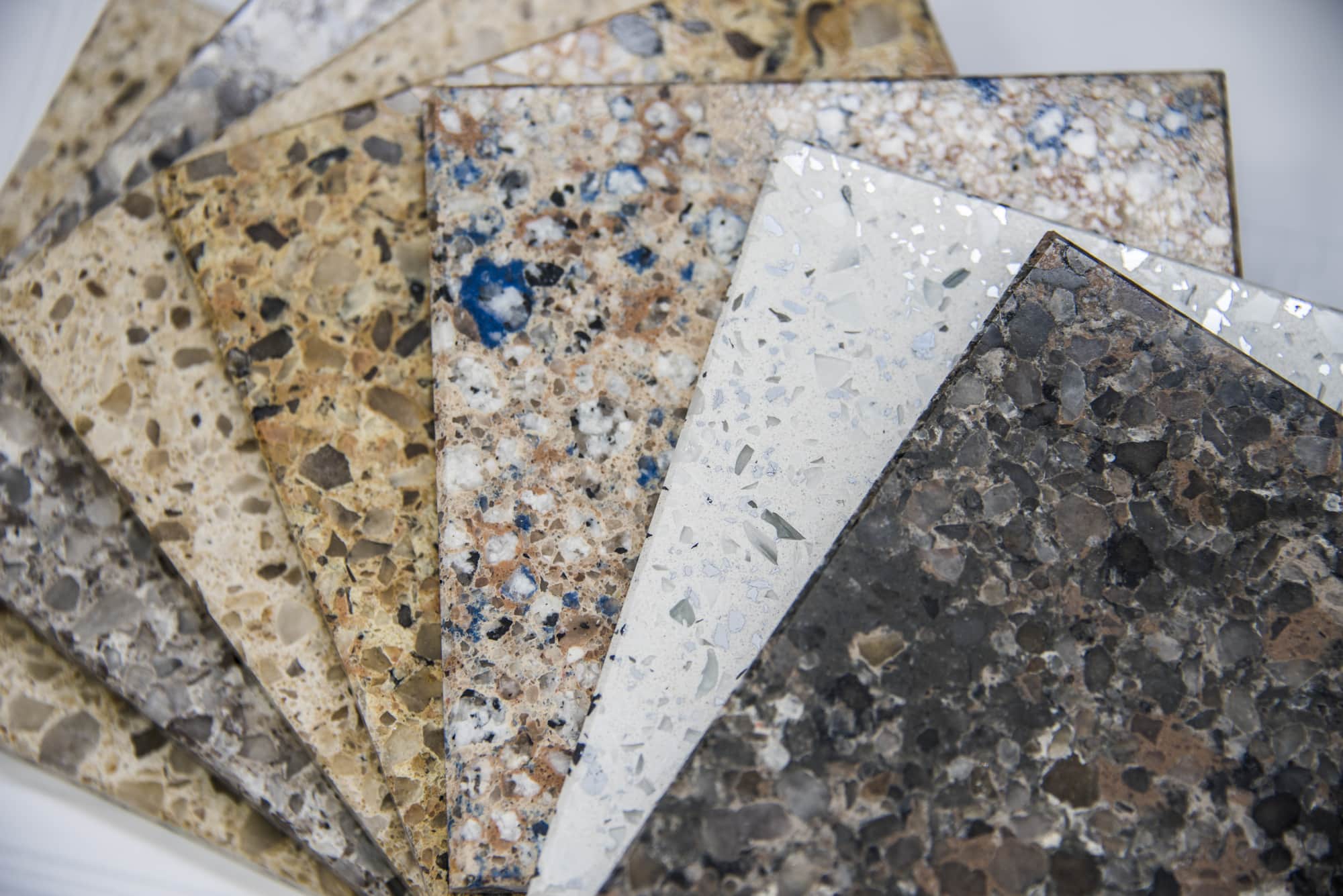Granite and quartz are two popular choices when it comes to countertops, but what sets them apart? We will delve into the differences between granite and quartz, exploring their unique characteristics and properties.
By understanding these distinctions, you can make an informed decision about which material is best suited for your needs. Whether you’re renovating your kitchen or bathroom, it’s essential to know the ins and outs of these natural stones.
So, let’s dive in and get acquainted with the fascinating disparities between granite and quartz!
Composition and Appearance
Composition refers to the chemical makeup and structure of a material, and when it comes to granite and quartz, their compositions are quite different. Granite is a natural stone that is primarily composed of minerals such as feldspar, mica, quartz, and other trace elements.
It forms through the slow cooling and solidification of molten rock deep within the Earth’s crust. This process results in a unique crystalline structure that gives granite its distinctive speckled appearance.
Quartz is an engineered stone made up mostly of crushed quartz crystals mixed with resin binders and pigments. Unlike granite which is naturally occurring, quartz countertops are manufactured using advanced technology.
The composition allows for greater control over color variations and consistency in patterning compared to natural stones like granite.
Appearance plays a significant role in choosing between these two materials for your countertop needs. Granite has a timeless beauty with its mesmerizing blend of colors including whites, blacks, grays, browns, blues or almost any shade imaginable.
Each slab of granite is unique due to variations in mineral content and pattern formation during its geologic history. This characteristic makes it highly sought after by homeowners who appreciate one-of-a-kind designs.
On the other hand, quartz provides consistent patterns throughout each slab due to its manufacturing process involving crushed crystals combined with resins. While some may prefer uniformity over uniqueness provided by nature itself found in granites’ variation from slab-to-slab – others may find comfort knowing that every inch will look exactly as expected when opting for Quartz.
Durability and Maintenance
Durability is an important factor to consider when choosing between granite and quartz countertops. Granite, being a natural stone, is known for its exceptional strength and longevity. Its dense composition makes it highly resistant to scratches, chips, and stains.
With proper care and maintenance, a granite countertop can last for decades without showing any signs of wear or aging.
Quartz countertops are engineered using ground-up pieces of quartz mixed with resin. This process results in a surface that is extremely durable and non-porous. Unlike granite, which may require periodic sealing to protect against staining liquids like wine or coffee spills, quartz does not need additional maintenance. It offers excellent resistance to heat damage as well as scratching and chipping.
When it comes to maintenance requirements, both granite and quartz have their advantages. Granite requires regular resealing every 1-2 years depending on usage to keep it protected from stains caused by liquids seeping into its pores. Mild soap and water also should be used for daily cleaning purposes instead of harsh chemicals that could potentially damage the surface sealant.
Quartz countertops are virtually maintenance-free since they do not need sealing due to their non-porous nature. Regular cleaning with soapy water or a mild cleaner can easily remove any dirt or spills from the surface without causing any harm.
Design and Style Considerations
When considering design and style considerations, both granite and quartz have their own unique features that can greatly impact the overall aesthetic of a space.
Granite is known for its natural beauty, with an array of colors and patterns created by the variations in minerals present within each slab. Its organic appearance adds warmth to any room, making it a popular choice for traditional and rustic designs.
On the other hand, quartz offers a more uniform look due to its engineered nature. It is made up of crushed quartz mixed with resin and pigments, resulting in a wide range of color options that are consistent throughout the entire slab.
This makes it an excellent choice for contemporary or minimalist styles where consistency and clean lines are desired.
Both materials can be customized to fit different design preferences through various edge profiles such as straight edges, beveled edges, or rounded bullnose edges.
They can also be polished or honed to create different finishes – polished surfaces provide a sleek look while honed finishes offer a softer matte appearance.
Choosing Countertops That Suit Your Lifestyle
Selecting the right countertops that suit your lifestyle is crucial for any home renovation project. Granite and quartz are both excellent choices, each with its distinct qualities. Granite offers a timeless beauty with its natural patterns and unique variations, while quartz provides a more consistent appearance with a wide range of color options.
Understanding these differences allows you to make an informed decision based on your personal preferences and needs.
Granite proves to be exceptionally resilient against scratches and heat. It is an ideal choice for those who love to cook or frequently use their countertops for various tasks.
Quartz offers superior resistance against stains and bacteria due to its non-porous nature, making it perfect for busy households or areas prone to spills.
Considering maintenance requirements is essential in choosing suitable countertops. While granite requires periodic sealing and occasional re-polishing over time, quartz is virtually maintenance-free as it does not require sealing or special care beyond regular cleaning.
Whether you decide on granite or quartz depends on factors such as aesthetics, durability needs, and maintenance preferences.

